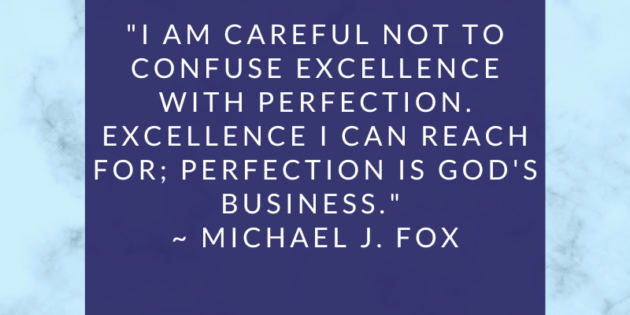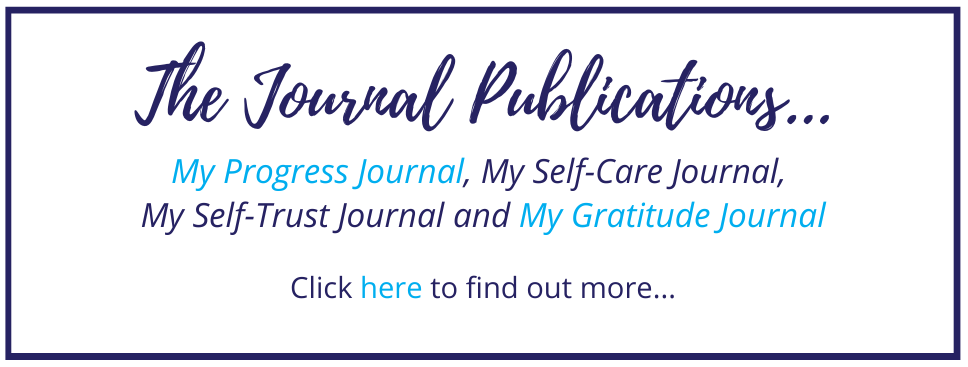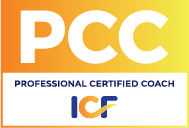Research continues to show that self-compassion is one of the antidotes to perfectionism (mmm – now you know one of the reasons why I teach self-compassion 🙂 ). Whilst I was ‘teaching’ MSC this week, the question came up about perfectionism. Subsequently, I decided to write a post on what perfectionism is and isn’t according to Brené Brown as she has written a lot on this subject.
What Perfectionism Isn’t –
In her book, The Gifts of Imperfection, Brené Brown writes –
“Perfectionism is not the same thing as striving to do your best. Perfection is not about healthy achievement and growth. Perfectionism is not self-improvement or striving for excellence. Perfectionism is the belief that if we live perfect, look perfect, and act perfect, we can minimise or avoid the pain of blame, judgement, and shame. It’s a shield. Perfectionism is a twenty-ton shield that we lug around thinking it will protect us when, in fact, it’s the thing that’s really preventing us from taking flight.
Perfectionism is not self-improvement. Perfectionism is, at it’s core, about trying to earn approval and acceptance Most perfectionists were raised being praised for achievement and performance (grades, manners, rule-following, people-pleasing, appearance, sports). Somewhere along the way, we adopted this dangerous and debilitating belief system: I am what I accomplish and how well I accomplish it. Please. Perform. Perfect. Healthy striving is self-focused – How can I improve? Perfectionism – is other focused – What will they think?” ~ Brené Brown
What Perfectionism Is –
There are many definitions on perfectionism, however I like the clarity Brené brings in her book The Gifts of Imperfection. She writes –
“Perfectionism is a self-destructive and addictive belief system that fuels the primary thought: If I look perfect, live perfectly, and do everything perfectly, I can avoid or minimise painful feelings or shame, judgment and blame.
Perfectionism is self-destructive simply because there is no such thing as perfect. Perfection is an unattainable goal. Additionally perfectionism is more about perfection – we want to be perceived as perfect. Again this is unattainable – there is no way to control perfection, regardless of how much time and energy we spend trying.
Perfectionism is addictive because when we invariably do experience shame, judgment and blame, we often believe it’s because we weren’t perfect enough. So rather than questions the faulty logic of perfectionism, we become even more entrenched in our quest to live, look and do everything just right.
Feeling shamed, judged and blame (and the fear of these feelings) are realities of the human experience. Perfectionism actually increased the odds that we’ll experience these painful emotions and often leads to self-blame: It’s my fault. I’m feeling this way because “I’m not good enough””.
Transforming Perfectionism
So how do we transform these tendencies towards perfectionism? We can start by owning our stories, understanding the difference from healthy achieving and perfectionism, including moving from –
- “what will they think” to “how can I improve?”
- people pleasing to self-acceptance,
- self-criticism to self-kindness,
- emotional illiteracy to emotional literacy,
- isolating yourself to connecting and realising the common humanity, and
- overidentifying with our thoughts towards being more aware and mindful of them.
Over to You…
I hope this post has given you some insight in to what perfectionism is and isn’t according. Is there anything else you would add? If so, please feel free to share your insights below.
If you are ready to reclaim your courage and take the next step towards your freedom and living whole-heartedly, why not join our Toolkit?
Reference –
Brown, B. (2010). The Gifts of Imperfection: Let Go of Who You Think You’re Supposed to Be and Embrace Who You Are. USA: Hazelden.

















4 Comments
[…] https://www.habitsforwellbeing.com/what-perfectionism-is-and-isnt-according-to-brene-brown/ […]
[…] because they depended on their own strength in the first place to succeed.Perfectionism is a trap. Brene’ Brown shares that perfectionism is a self-destructive and addictive belief. It is practiced to avoid shame and to gain the approval of others. Perfectionism keeps up the […]
[…] because they depended on their own strength in the first place to succeed.Perfectionism is a trap. Brene’ Brown shares that perfectionism is a self-destructive and addictive belief. It is practiced to avoid shame and to gain the approval of others. Perfectionism keeps up the […]
[…] more you try to chase down perfection, the more you will feel disappointed. This disappointment will lead to guilt because you will blame yourself for not doing […]
Leave A Response